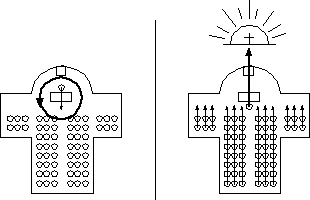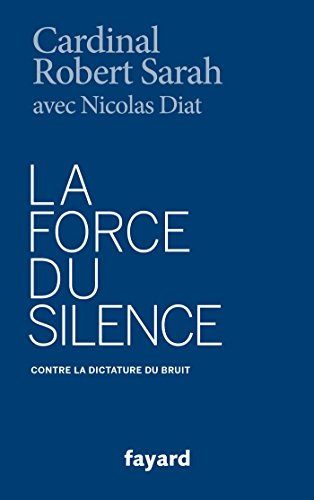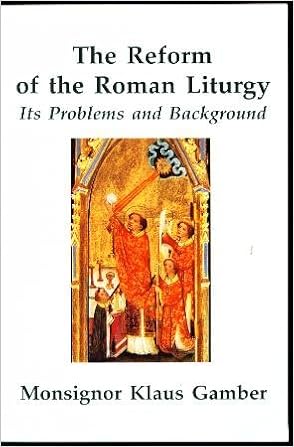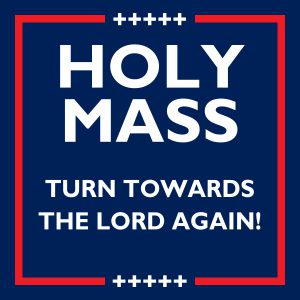I receive this from a reader…
I thought you might be interested in this; it at least is new to me. In Waterbury, Connecticut this morning, I came across this version of “Now Thank We All Our God” in WLP’s “We Celebrate” hymnal. I circled the two notable changes. The first is what caught my ear and made me pay closer attention even though it was very subtle. The way I always heard this hymn, it was “In whom his world rejoices, not “this world.” The reasons are obvious. It’s one of those things that had it been written that way in the first place 400 years ago, no one would care, but obviously someone with a 2016 agenda was at work here.
The second is actually more troublesome. The way I’ve always heard it, it was, “and free us from all sin, till heaven we possess,” not “free us from all ills, in this world and the next.” The very end of the verse doesn’t bug me too much, but I wonder why that needed to be changed. Expunging the reference to sin, however, does raise my ire— as you well know, that is not what we need these days. It makes me wish that the hymn had a Latin original so that we could appeal to that.
I am with Cardinal Sarah– the Novus Ordo needs to be fixed, not made even worse with stuff such as this.
 The other day I wrote about a blurb Benedict XVI penned for a book in honor of the 25th anniversary of election of Patriarch Bartholomew. Benedict took that opportunity to emphasize the importance of ad orientem worship. I am confident that he did this knowing full well that Card. Sarah called for ad orientem worship from priests beginning in Advent, if possible, and I am also confident that he knows about the blow back and defiance Card. Sarah’s invitation provoked. My friend Jan Bentz also wrote this up for LifeSite the other day. HERE
The other day I wrote about a blurb Benedict XVI penned for a book in honor of the 25th anniversary of election of Patriarch Bartholomew. Benedict took that opportunity to emphasize the importance of ad orientem worship. I am confident that he did this knowing full well that Card. Sarah called for ad orientem worship from priests beginning in Advent, if possible, and I am also confident that he knows about the blow back and defiance Card. Sarah’s invitation provoked. My friend Jan Bentz also wrote this up for LifeSite the other day. HERE
We need ad orientem worship as an effective orthotic for many levels of the Church’s life. I say the same about expanding the use of the older, traditional form of Holy Mass. Benedict gave us great tools: a good explanation of what ad orientem worship is about and also the Motu Proprio Summorum Pontificum.
Not too long ago, His Excellency Robert C. Morlino, Bishop of Madison and The Extraordinary Ordinary, spoke to seminarians and staff at the North American College about ad orientem worship. He made a great connection between “turning towards the Lord” and morals, the bridge between them being a recovery of a sound eschatological view. He also published a version of that talk in the diocesan newspaper. HERE You will see how he deals with pro-life issues along with matters of matrimony. It is quite the presentation. And he is right.
Ad orientem worship directs us all together to the liturgical “East”, whence from the very beginning Christians have believed the King of Fearful Majesty will return in glory to judge the living and the dead and unmake the world in fire.
Judge the living and the dead and unmake the world in fire. That bears repeating.
Ad orientem worship can help us recover together a deeper sense of the Four Last Things.
I am pretty sure that people who regularly meditate on the Four Last Things are less inclined to commit mortals sins habitually.
Perhaps this is one of the reasons why there are bishops and priests who so strongly resist and even fear ad orientem worship. Perhaps they are purposefully avoiding, for one reason or another, regular reflection on their own judgment, the Four Last Things. I have often wondered if that is the reason why many priests neglect their duties in regard to the Sacrament of Penance for their flocks.
I suspect that priests who on principle refuse ad orientem worship have a problem of some kind that they are not dealing with. I’m not talking about priests who don’t want to say Mass “turned towards the Lord” because they are unfamiliar with it, or they are not sure their flocks would go for it, or they just don’t get it. I’m talking about priests who get it, but they refuse on principle ever to say Mass ad orientem. I can’t shake the idea that they might be dealing with some undealt with issue.
But I digress.
 As I read more and more of Card. Sarah’s new book about the power of silence to combat the dictatorship of noise (right now only in French – US HERE – UK HERE), on the foundation of having read also his fantastic God Or Nothing (think about that title for a moment – UK HERE), as I consider also how he speaks in public and having spoken with him personally, I am convinced that his appeal to priests to “turn towards the Lord” is rooted in profound marrow. It is a sound course of treatment, a corrective orthotic. When I compare what Sarah has to say with what his critics respond… and how they respond… pffft.
As I read more and more of Card. Sarah’s new book about the power of silence to combat the dictatorship of noise (right now only in French – US HERE – UK HERE), on the foundation of having read also his fantastic God Or Nothing (think about that title for a moment – UK HERE), as I consider also how he speaks in public and having spoken with him personally, I am convinced that his appeal to priests to “turn towards the Lord” is rooted in profound marrow. It is a sound course of treatment, a corrective orthotic. When I compare what Sarah has to say with what his critics respond… and how they respond… pffft.
There comes to mind the image of braces on legs, teeth, or back, which slowly and painfully correct rigid structures when they are twisted and dislocated. Ad orientem worship in the Novus Ordo and also the side-by-side celebration of Holy Mass in the traditional form of the Roman Rite are orthotics. They are spine straighteners and strengtheners. They realign.
We are dislocated right now. Our corporate Catholic identity is twisted and misaligned, alternately enervated and neuralgic, which makes it harder and harder to run to our daily tasks as Catholics, in private and in the public square. If our spines are out of line, we can’t do the heavy lifting of living Catholic lives according to our God bequeathed vocations. If we cripple ourselves, we betray the gift God has given us.
We all always need conversion. But we also, as individuals and as a body, need straightening.
Retracing my steps to the reader’s letter at the top, note how the redactors edited out the uncomfortable reference to sin. This doesn’t surprise me, of course. In the prayers, the orations, for the the Novus Ordo, when they were based on or pasted together from bits of earlier and ancient prayers, nearly completely redact out clear references to our sins, our guilt for sin, expiation, propitiation, etc. The bowdlerized hymn reflects the bowderlized orations. Don’t get me wrong. The orations in the Novus Ordo are, generally, pretty good prayers, taken individually! But, as a body of prayers, they aren’t enough. They studiously avoid clear references to some really important things. They leave us without the constant spur to reflect on our souls and think about our judgment.
Ad orientem worship in the Novus Ordo and side by side use of the Traditional Roman Rite will bring to our flocks a powerful corrective for the twisting enervation of our Catholic identity. The correction of the twist will be slow and painful, I’m afraid. Those braces on limbs and on teeth don’t feel good. But without the corrective counter-forces on our twists we soon won’t be able to walk or chew. I don’t know much about sciatica – caused by pinching and irritation of nerves when things get out of line – other than the fact that it is really painful and that, unless it is treated, it can get so bad that you can’t get around.
The treatment is painful but the lack of treatment is worse.
Fathers… there is time before Advent to start catechizing your flocks, to ready them to turn toward the East. There is time, but you have to begin now. Many will fight you. They will grumble and make complaints. Your bishops might – probably will – bully you. Your fellow priests will run you down. I think it is the right thing to do. You will be made to suffer. I, too, will be made to suffer for urging this. If you can’t do it right now, Fathers, start thinking about how you can get it done down the line. Make a plan. Read and study.
Get Ratzinger’s The Spirit of the Liturgy US HERE UK HERE
Get Klaus Gamber’s The Reform of the Roman Liturgy: Its Problems and Background US HERE UK HERE
Get Fr. Lang’s Turning Towards the Lord US HERE UK HERE
Dear readers… make sure that your priests have these books. Get them. Give them.
This is going to be hard and fraught with pain.
As Augustine wrote, with only his knowledge of ancient medicine, the doctor doesn’t stop cutting just because the patient is screaming for him to stop.
UPDATE:
I received this amusing note from Fr. George Rutler about the hymn and comments at the top of this post. He corrects an errant assumption about the text change. However, his correction in no way touches on the fundamental point I made about what was intentionally done to weaken the Novus Ordo texts Nor does it touch on my larger goal in the post. Still, this is interesting. Take it away, Fr. R:
Re:
“Now Thank We All Our God”:
Sophia Institute Press is republishing my history of hymns, “Brightest and Best” in January. It was first published by Ignatius Press 19 years ago and has been out of print.
Having been an Anglican choirboy, I know many hymns by heart and I can say that, curiously, the WLP version of “Now Thank We All Our God” is the original. (“sin” for “ills” is the bowdlerized version. )The text is by Catherine Winkworth (1827-1878) an English social worker and Germanophile. She went through a couple of slight revisions (“this world” in the original and “his world” in later ones), and basically what we have first appeared in her “Lyra Germanica” in 1858. Of course the archaic indicative “haths” were in the mint Winkworth text..
The German original was written by Martin Rinkart (1586-1649), Lutheran archdeacon of Ellenburg during the horrors of the Thirty Years’ War. “Der un von Mutterleich/Und Kindesbeinen an/ Uhzahlig viel ze gut/ Bis hieher hat getan” (I don’t do umlauts). [And you are the poorer for it!] Part of it is a paraphrase of Jesus ben Sirach.As Winkworth was a Germanophile, Mendlessohn who harmonized the tune of Johann Cruger, was an Anglophile. The Nazis banned all his works, along with the works of Mahler, because of racism.
This is the classical English version:
Now thank we all our God, with heart and hands and voices,
Who wondrous things hath done, in Whom this world rejoices;
Who from our mothers’ arms hath blessed us on our way
With countless gifts of love, and still is ours today.O may this bounteous God through all our life be near us,
With ever joyful hearts and blessèd peace to cheer us;
And keep us in His grace, and guide us when perplexed;
And free us from all ills, in this world and the next!All praise and thanks to God the Father now be given;
The Son and Him Who reigns with Them in highest Heaven;
The one eternal God, whom earth and Heaven adore;
For thus it was, is now, and shall be evermore.






































Back to “Nun danket” . . .
The changes are returns to the original.
“And free us from all ills/ in this world and the next” is Catherine Winkworth’s original translation of Rinkart’s “Und uns aus aller Not/ Erlösen hier und dort.”
“In whom this world rejoices” is her interpolation and not a direct translation.
But overall pretty close, given the need to make it scan and rhyme. I generally like Winkworth’s translations, they manage to keep the sense while being “singable.”
But it’s Lutheran, translated by an Anglican, and there you are.
My personal inclination is “don’t mess with the text.” Then at least you know what the original was.
Yes, I agree with AnAmericanMother. I’ve been singing that hymn since the 1960s, and it’s always been “… in this world and the next”. However, now that it’s been mentioned, I think over all that time we’ve sung both “in whom his world…” and “in whom this world…” depending on whatever text we happened to be using at the time, although I’d say “his world” has probably been the most frequent and if anyone asked me, off the top of my head, to recite the text, that’s what I’d use.
(AAM – good to see you back. God bless. J.)
Aaahhh, I’m stupid! Meant to say: ” and it’s always been ‘and free us from all ills, in this world and the next’. I’ve never seen the “and free us from all sin” version.
Indeed, to second the remarks of AnAmericanMother, the text is now closer to the German. We should recall that the German is not a pious Catholic song. It is a Lutheran hymn. Alas, myself an aesthetic fan of Bach, I am often reminded that so much of his corpus is imbued with his Lutheran sensibilities. The original text of the second passage in question, by the Lutheran Martin Rinkart (1586-1649), reads:
Und uns in seiner Gnad,
Erhalten fort und fort
Und uns aus aller Not
Erlösen hier und dort.
Winkworth’s original is here quite closer to the German original—which doesn’t make it better theologically. (Indeed, one wonders how we would freed from “need” in the next life. I’m not sure that is the best way to express the difference between Hell and the Beatific Vision….)
The first point is certainly the normal trite banality we forced upon us by musicians who use these texts and by bishops who don’t have strict requirements for hymnals. (Indeed, I just correct the text when I sing it. Alas if I distract someone next to me. Luckily, this tends not to be a problem, given that I avoid the vagaries of the Novus Ordo when at all possible. Still…. It’s not always completely possible, especially for a weekday Mass.) In any case, the German original is actually, “Der große Dinge tut; An uns und allen Enden”: “Who has done great things; for us and all our ends (or, purposes).”
I came here to say, “But that’s the way I sang it when I was an Episcopalian before I converted” but all of you here before me (“antecessories!”) have said it much better than I could. The Catholic changes in words in Episcopalian hymns VERY frequently have shown me truth as a convert that I would never have seen.
Hooray for Catholic ingenuity and truly Catholic innovations. Let’s take everything – everything worth preserving – and make it Catholic!
Perhaps this is one of the reasons why there are bishops and priests who so strongly resist and even fear ad orientem worship. Perhaps they are purposefully avoiding, for one reason or another, regular reflection on their own judgment, the Four Last Things. I have often wondered if that is the reason why many priests neglect their duties in regard to the Sacrament of Penance for their flocks.
I used to think the same thing until last night when I attended Mass at a parish where the young pastor is very reverent and diligent in his priestly duties, only to find an older priest filling in for him who gave a riveting homily on our need for holiness and ours and his final judgment about how if we’re not holy we will go to our final judgment alone and it will be our condemnation. I thought I judged a book by the cover and that despite not wearing priestly garb, this priest got it and I didn’t have to worry about Mass. Alas, I was wrong. He kept using the pall for the chalice to violent swat flies to the point I thought he was going to throw the pall across the church, and said Mass sloppily and then changed the words of consecration for the Precious Blood, though he managed to say the bare requirement for a valid consecration. It was a combination of cognitive dissonance and heartbreak to sit through that Mass.
Another ad orientem post to remind me: I need to find an opportunity to ask our pastor if he’s going to take up Cardinal Sarah’s suggestion to say Mass ad orientem during Advent.
I think he would be open to the idea. I fancy that he might even be considering it on his own accord. Interest from his parishioners might make it happen.
Not to add to the Bowdlerization problem, but I’ve always thought it would be neat if the text said:
“Who from our mothers’ wombs hath blessed us on our way”
Fortunately, I don’t publish hymnals.
And then there’s the awful change to “Amazing Grace” lyrics:
“Amazing grace how sweet the sound
That saved a wretch like me.”
Changed in our modern Catholic missalettes to say:
“That saved and set me free.”
Yes, we don’t want to think too lowly of ourselves, sinners that we are. Blah.
I also don’t much like “through the dark valley” instead of “through the valley of the shadow of death.” Goodness, we should not be too scared, right? Blah again.
Fr. Z: in addition to the Madison Catholic Herald eschatological piece, what basic reading or prayer(s) can you recommend on contemplation of the Four Last Things? (Assuming that Mass and Confession help get us in the mindset, of course.)
@iamlucky13….I should bring this up with the pastor, too. It’s been some weeks since I’ve said anything to an associate pastor so I shan’t be accused of hectoring, I hope.
Here’s the pushback I *might* receive:
– We already celebrate Mass ad orientem on Sundays (Dominican Rite, in Latin, mid-afternoon), so the people already have that option.
– Even though the posture is versus populum, our Roman Rite ordinary form Masses are reverently said.
– We have to check with the higher-ups.
So even at “good” parishes, I surmise that, with respect to the Missal of Bl Paul VI, the change from versus populum to versus cum populo will most easily happen with a little nudge or even a tiny indication of support from the bishop.
The first Lyra Germanica edition – 1890 – I called up in the Internet Archive demonstrates what Fr. Rutler says: it has “In Whom His world rejoices”. The only Martin Rinkart I can find there (Louis Plato, M. Martin Rinkart nach seinem äussern Leben und Wirken from 1830) indicates the German text has its variants, too: “an allen Enden”.
Digress thou dost in all fairness. For in the temporal world judges often err because their sense of right and wrong is benighted. A state of grace cultivates clear vision and sound judgment.
Years ago our saintly (then) parish priest chucked out the modern “come light my fire song book” he inherited from his predecessors and reverted to the brilliant, ineffable, “The Parish Hymn Book” (John P Rush). There was a tiny typo error in the rendition of Crashaw’s splendid verse: “That blood, whose least drops sovereign be, to wash my worlds (sic) of sin from me.” ‘Worlds” had been printed as “words”. Father had us amend all our books on the spot, before he started saying Mass. Almost 20 years later, I still meditate upon my worlds of sin … and, though absolved through Confession many times, still grieve. If anything, the greater the mercy shown me, the greater my grief at having offended my beloved King.
I agree that greater institution of ad orientem worship would be very helpful in general. And, I would be remiss if I didn’t point out that “Best and Brightest”, which currently can really only be obtained second-hand from booksellers, and I know because I’ve handed around more than a few over the years to friends, is an excellent book in the way that reader Matthew Gaul’s book on iconography is wonderfully edifying. Such thoughtful and contemplative “tours” of liturgical and prayer traditions magnify our dignity as sons and daughters of God in Holy Mother Church.
A good example of bowdlerization occurs with Faber’s hymn ‘O come and mourn with me awhile’ (1849). In the 19th century Protestants re-wrote the first verse to remove reference to Mary, and more recently Catholics have taken exception to the line in verse two, ‘While soldiers scoff and Jews deride’, and have altered it accordingly.
Hymns are essentially religious poetry, and the poet’s original text should be respected and not mucked about with.
benedetta,
Do you mean Brightest and Best: A Companion to the Lesser Feasts and Fasts by Sam Portaro? (That – which I’ve never heard of – is what turned up when I went searching for “Best and Brightest” (which I could not place) at Amazon – where some of the sellers list their copies as “New” – with varying degrees of explanation…)
mithrandirmonk,
You have set (me, at least) some interesting questions about (17th-c.) German word-use. ‘Allen Enden’ seems to be used (among other things) for the “omnes termini terrae salutare Dei nostri” of Psalm 97. How many senses of “Enden” may be intended at once, in the hymn?
I can’t find a handy online old Luther Bibel text, but my old Vulgate concordance has lots of entries for ‘necessarius’, ‘necesse’, ‘necessitas’ which leave me wondering about the allusive and theological range of that “Und uns aus aller Not / Erlösen hier und dort.”
What I find intriguing is the line saying “free us from all ills, in this world and the next.”
If we look forward to heaven as the “next world,” then what possible “ills” could there be??
Maybe this is a reference to purgatory. (If so, then I presume most Protestants hymnals will exclude that verse…)
Venerator, Certainly not; I meant Fr. Rutler’s wonderful book entitled after the beautiful hymn, which is, apparently, one of Fr. Rutler’s own personal favorites of hymns. I was in a bit of a hurry when I mis-typed the title. Please do not buy anything on amazon entitled “Best and Brightest” and say it is on my suggestion!
Here is a link to an interview with Fr. Rutler about both his book and hymns, in general. I will have to see if I can find his book. It seems to approaches what I would like in a history of hymnology.
The Chicken
Oops. Forgot the link:
http://www.ncregister.com/site/article/recovering_the_churchs_beautiful_music
The Chicken